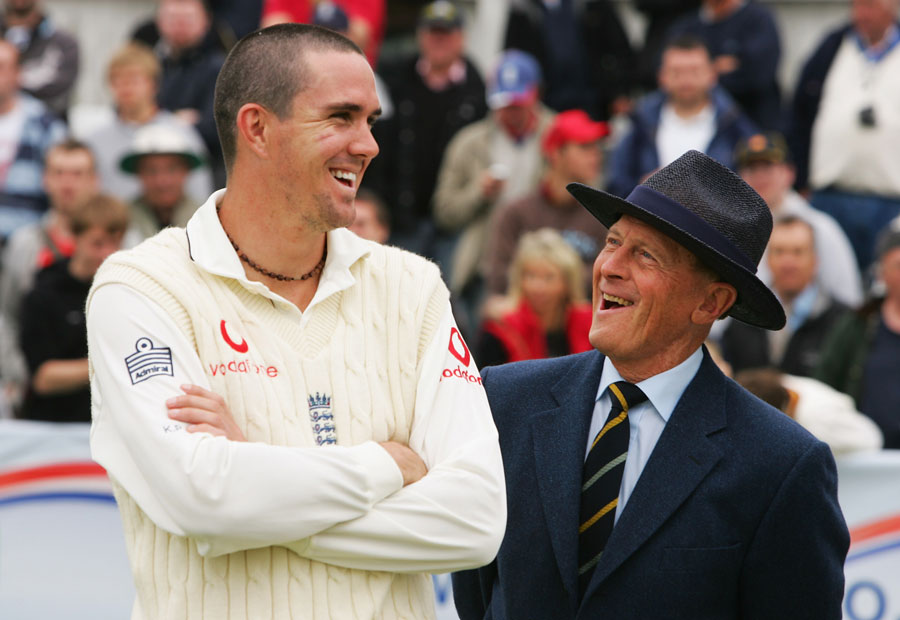We are not going to take this lying down. Now is not the moment to supinely accept the latest act of cruelty our ECB overlords determine to perpetrate against us.
On Tuesday night, at the height of my anger, I wrote on Facebook that Pietersen’s dismissal constituted the greatest act of betrayal in the history of British sport.
If anyone bothered to read my outburst, they may have deemed me insane. But even in the cold light of day, I stand by every word.
We, the followers of the England cricket team, have been treated with an arrogance and contempt to a degree which is grotesque even by the standards of the English game’s hierarchy.
The ECB has taken a long, slow look at us, and then – quite deliberately – thrown a bucket of cold piss in our face.
They have sacked our best player – a cricketer whom some of us disliked, but many of us adored, and the vast majority valued. In so doing, they have ruined any chance of our short- or medium-term revival in Test cricket.
Pietersen’s sacking was not only a vindictive and cowardly way to treat one of English cricket’s finest servants. It was also a self-inflicted and catastrophic act of vandalism against the very fabric of our team.
Our team. Not their team. Our team.
We – the supporters, the spectators, the TV viewers – are the people who make English cricket what it is. Without us, it has no meaning or purpose – and becomes merely the private enterprise of two hundred professional sportsmen and administrators.
Our passion and our participation are the essence of the entire game. And our money pays for it. The salaries of the ECB executives and the England players are funded directly by the – very expensive – match tickets and Sky Sports subscriptions we buy.
The ECB have always taken us for granted – never doubting that we poor saps will obediently fork out whatever it costs to follow the team, even when they sold the game to Rupert Murdoch to line their pockets and then sent us the bill.
Depending on how you look at it, we are either the taxpayer or the customer. But when Downton, Whitaker and Giles conspired to make their fateful decision, do you think that for one nanosecond they thought about us?
Did they ask themselves – is the removal of Pietersen in the best interests of England supporters? Is it what they’d want? Is it a fair way to treat them?
I think not. But once that call had been made – with all its huge significance for the future health and performance of the test side – Paul Downton couldn’t even be bothered to explain to us the reasons why.
The ECB’s failure to tell us why – and exactly why – they sacked KP is breathtaking in its arrogance. We need to know the precise reasoning behind a decision which has caused such pain and which has such immense significance for our future.
We are stakeholders – and as such we have an unquestionable right to know the truth. And yet they are hiding still behind that wretchedly bland and evasive press release. Did Downton really think we’d accept those weasel words?
There is no justification for the ECB’s secrecy. If Pietersen’s behaviour genuinely made it impossible for him to continue in the side, then we must be told the specific facts, in detail: what happened, when, where, and involving whom. The excuse of employer confidentiality is nonsense; in no other walk of life would this happen – if a public sector employee was dismissed for gross misconduct, the facts would be placed in the public domain.
The other excuse offered is the sanctity of the dressing room: the notion whatever happens there, stays there. Usually, that’s fair enough. But in this affair, the England players have forfeited any such rights to confidentiality. The anti-KP faction have got what they wanted – their enemy has been liquidated – and in return they are obliged to reveal the facts which cost a man his career and the team its best player. If indeed Pietersen was fired as a result of conflicts and other incidents which occurred in private, they can no longer be kept private.
Piers Morgan was absolutely right to make the claims about Matt Prior on Twitter yesterday. The CNN and Life Stories host may not be to everyone’s taste, but at the moment he is the only journalist with the balls to challenge the establishment head-on, and shine a light into the incestuous and insular culture of the England squad. There may be no reason to single out Prior (although he did not deny Morgan’s allegation), but that’s not the point – in this climate of secrecy and obfuscation, the only answer is guerilla warfare and nuclear tactics.
Many people say – why is Morgan sticking his nose in, when he’s not a cricket journalist? It’s precisely because he’s outside the cricket world that his intervention is so valuable. Morgan is a total pain in the arse for the cricket establishment, and right now that’s exactly what we need – someone who’s not afraid to upset the ECB. That’s in contrast to the leading media cricket correspondents, who have been so disappointingly supine and reverent, especially Jonathan Agnew and – uncharacteristically – Mike Atherton.
The truth is that cricket hacks live in the same cosy bubble as the players and administrators, and they all have far more in common with each other than any of them do with the public. The Fleet Street press pack need good relationships with the ECB and plentiful access to the talent – which makes them too cowardly to speak very far out of turn. Thank the heavens that Michael Vaughan, at least, has had the guts and intelligence to see through the bullshit and tell us the truth.
But to return to the subject of openness – it might be, of course, that the ECB have not revealed the reasons for KP’s execution for the very simple reason that they don’t have any. They can’t tell us the detail of Pietersen’s offences because he never actually committed any. Even Derek Pringle, the arch-KP hater, and a journalist close to both Alastair Cook and Graham Gooch, can’t come up with much beyond a possible row with Andy Flower in Sydney. The BBC today report that no row took place between Cook and KP, and Graeme Swann told The Sun that ”I saw or heard no issues with [KP] in Australia this winter. His approach was exceptional”.
If this is true – that nothing much really happened – it means that Pietersen was dismissed purely because a few people didn’t like him.
Neither Downton or Whitaker have deigned to give a press conference to explain themselves. No ECB representative has yet given an interview. The most plausible explanation for the silence is this: it’s never occurred to anyone at Lord’s that we, the public, deserve a proper account of the facts. It would be beneath Paul Downton to actually have to address the great unwashed.
As far as the ECB are concerned, our purpose in cricketing life is merely to buy tickets and subscribe to Sky. Beyond that we are at best an irrelevance, but mainly an inconvenience.
The Guardian report that James Whitaker is due to give two broadcast interviews today, on the T20 squad selection. These were already scheduled before KP-gate arose. It remains to be seen what he will, or won’t say.
Downton, meanwhile, has given no interviews at all since he took charge, not even to discuss the abrupt and surprise departure of Andy Flower – who himself did not speak publicly either. The entire landscape of Team England has been bulldozered, without a word of explanation.
The ECB have turned the clock back to the Middle Ages, to the days when the MCC, a private club, ran the game as a personal fiefdom – aloof, patrician, and self-appointed.
And the wrecking balls have been wielded by a dismal triumvirate who remain steadfastly in the shadows, and whose credibility – to put it mildly – is open to question.
Paul Downton, the new England managing director, has been out of the game for more than twenty years. How did he get the job? Did Giles Clarke get chatting to him at a cocktail party?
James Whitaker, the new chair of selectors, is best described with this summary from Darren Gough on Talksport: “Lovely man – he always looks smart, nice hair, nice suits. Chairman of selectors – one Test match for England”.
Presumably, the ECB didn’t have the phone number for any Englishman who’d had a proper test career.
Ashley Giles also had one hand on the dagger’s handle, and goodness knows why he was given the right to decide who the next coach will be able to pick. Unless he has already been told that the job is his. And if so, god help us.
You might think that I’m exaggerating, that I’m hysterical, that I’m paranoid and mad. What a fuss I’m making, you may say, about dropping a player who was a git anyway.
OK then, fair enough. Let’s just put up with it and carry on. I mean, everything’s fine like this, isn’t it?







